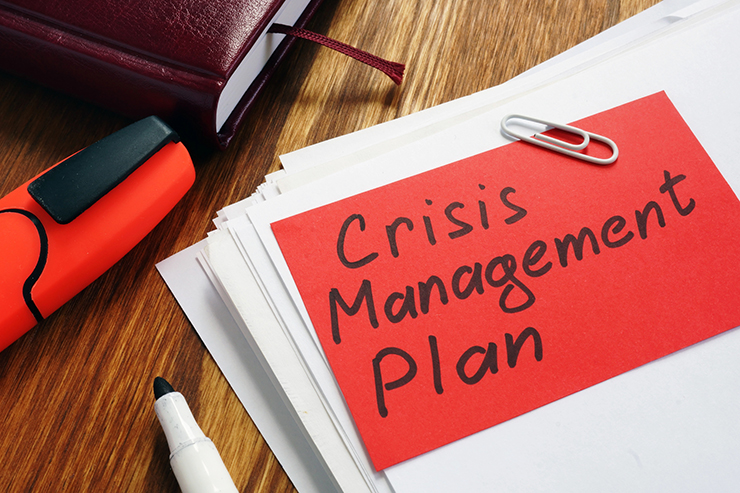If there’s one underlying message that has come from the headlines of recent weeks, it is the need for having a good Crisis Management Plan, commonly known as a CMP.
This is an area that often is neglected until it is needed, and then it can be too late.
It is so important that large corporations have entire departments devoted to risk assessment and crisis management. While it may seem to require a very negative line of thinking, it can have a profoundly positive impact on your life and business.
The key is to not only identify possible issues and challenges, but to also develop ways to prevent, mitigate, or remediate them.
When it comes to crisis management, there are three facets:
Prevention – This is the least painful and most cost-effective solution.
Prevention is usually related to routines and maintenance. While most business owners would rather focus on growth, marketing, and profitability; there is a quiet, unsung hero that makes that possible. That hero is “routines and maintenance.”
Personal routines help you stay healthy and active so you can succeed. Systemic routines support you in being on time and available to do the work at hand. In similar fashion, routines also keep your company alive and well.
Consider the people and processes that support you and your company. Do any need attention?
Giving regular time and attention to the routines and maintenance of your business goes a long way toward preventing future issues. As such, they can support sustained growth while also preventing significant loss.
Mitigation – This is pro-actively seeking ways to lessen the impact of an issue.
Some things are just going to happen. You cannot control them; but you can lessen their impact. You cannot control the economy, for example, but you can create a healthy internal economy that provides a buffer against the impact. You cannot control the entire supply chain, but you can plan ahead to keep a ready stock of your most-needed items. You can have good communication channels so your team can alert you to issues before they become crises.
Remediation – This is, basically, reacting to the aftermath of an issue.
It tends to be the costliest factor in crisis management because it is cleaning up after a crisis has occurred and then rebuilding. Your best leverage in this situation is to have a remediation plan on the ready before you need it. Identify your best resources and teams. Have processes in place so they can hit the ground running. Have funds set aside to cover the unexpected.
If you are a very driven, idea-focused I-wired leader, you may not have given this area of your business a second thought. You would much rather talk about marketing, sales, and growth and just about anything except crisis management.
Have no fear! You have reinforcements.
Collaborate with your team and with a team of experts.
Choose people who have opposite strengths of yours, who will question and help you to vet your ideas. Listen to those C-wired team members who occasionally challenge you on initiatives. Have your S-wired team members create a process. Working together brings the best of both worlds – a product or program that is not only a great idea but one that also provides high quality and profitability.
And if swift remediation is needed, a D-wired, driven leader, is your best team member to initiate action and get the job done.
Your complementary strengths can be used to build a strong, resilient, and growing organization.
For valuable resources on Leadership Strengths and Tools, click here.
Deb Ingino is a highly sought-after executive coach, mentor, consultant, and speaker worldwide. Deb is well versed in business operations and in the importance of asking key questions most business leaders won’t ask themselves. She brings deep experience in leadership development, strategy, high performance team building and effective communication. She has a passion for leading people to discover and maximize their strengths as well as those of fellow team members, while offering advanced strategies to achieve high performance. Deb is the perfect fit if you’re ready to take your leadership and impact to the next level!

+ view comments . . .